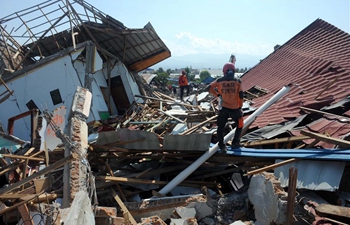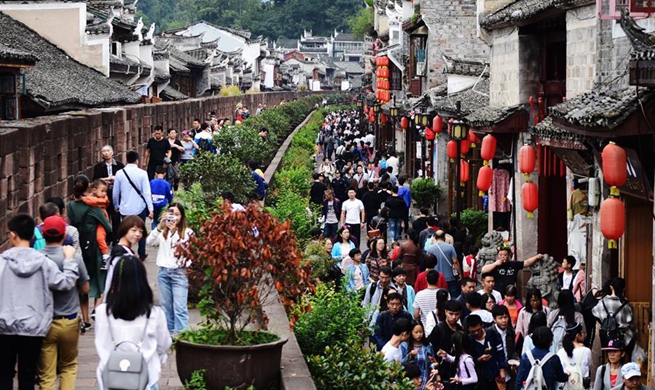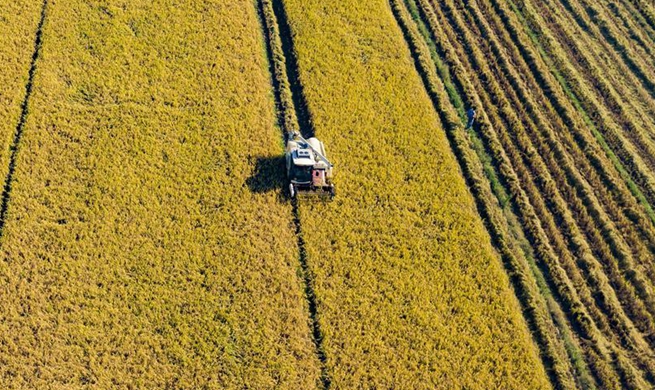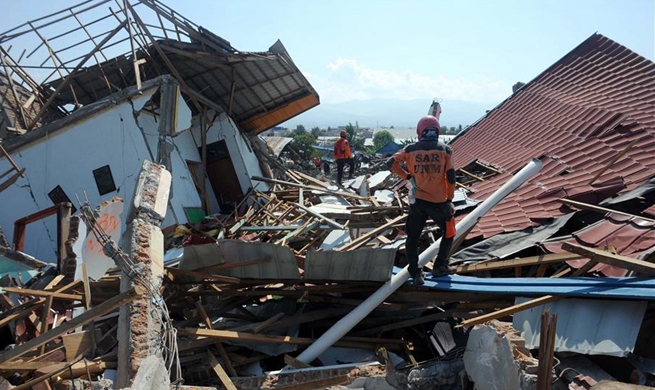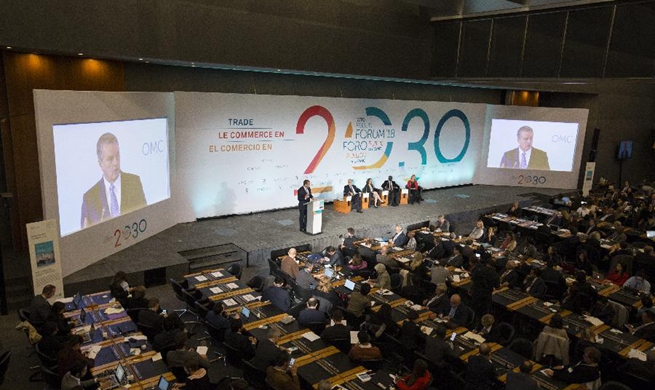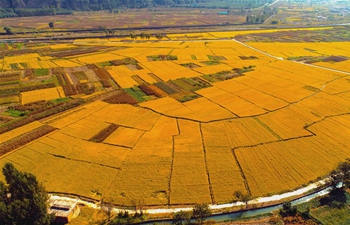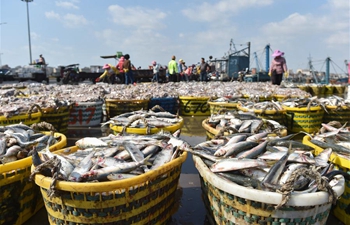PHNOM PENH, Oct. 4 (Xinhua) -- The Cambodian economy is expected to marginally accelerate to 7 percent in 2018, compared to 6.9 percent in 2017, underpinned by external demand and upbeat investor sentiment, a new World Bank report said on Thursday.
The bank's latest Cambodia Economic Update said garment, travel goods, and footwear exports increased 16.1 percent year-on-year during the first half of 2018 -- a two year high -- up from 8.3 percent at the end of 2017.
It said tourist arrivals reached 3 million during the first six months of 2018, which represented a 13.6 percent increase year-on-year, compared with 11.8 percent in 2017, and is driven by a surge in tourist arrivals by air from China.
The report said capital inflows continued to increase, and large foreign direct investment inflows continued to underpin construction activity.
"Foreign direct investment is estimated to have increased by 14.3 percent year-on-year during the first six months of 2018. More than half of the inflows originated from China, and are directed towards commercial and residential real estate, as well as, to a lesser extent, manufacturing and agriculture," it said.
Newly emerging hot spots of the current construction boom included the seaside provincial town of Preah Sihanouk, whose FDI approvals amounted 126 million U.S. dollars in June 2018 alone, it added.
Speaking at a press conference here during the report release, World Bank-Cambodia's senior economist Miguel Eduardo Sanchez Martin said the strong growth in garment, travel goods, and footwear exports was partly thanks to a 2016 agreement between Cambodia and the United States on travel goods. Under the deal, Cambodia can export travel goods to the United States with duty-free.
For the sharp increase in Chinese investment in the Southeast Asian nation, he said that "relatively close" ties between the two countries had encouraged more Chinese investors to Cambodia.
"Chinese investors are coming here, probably, because they're looking for opportunities in the real estate sector and in manufacturing since Cambodia has cheap labor force," Miguel said.
The report also highlighted main risks to Cambodia's economy. Those included rising protectionism and potential revision of Cambodia's preferential access to advanced economies.
To sustain strong growth in the medium term, the report said that Cambodia needs to mobilize domestic savings to boost investment and that Cambodia lags behind other countries in East Asia Pacific in terms of the quality of infrastructure, and it is heavily dependent on aid and foreign funding to build its network.
"To sustain rapid growth and to reduce excessive dependency on external capital, Cambodia would need to boost domestic savings and investment, including through the diversification of financial products, the development of domestic debt market, and the strengthening of public investment management practices," it said.
Cambodia's growth is projected to ease modestly to 6.8 percent in 2019 and 2020 due to the peak of global demand, the report said.




